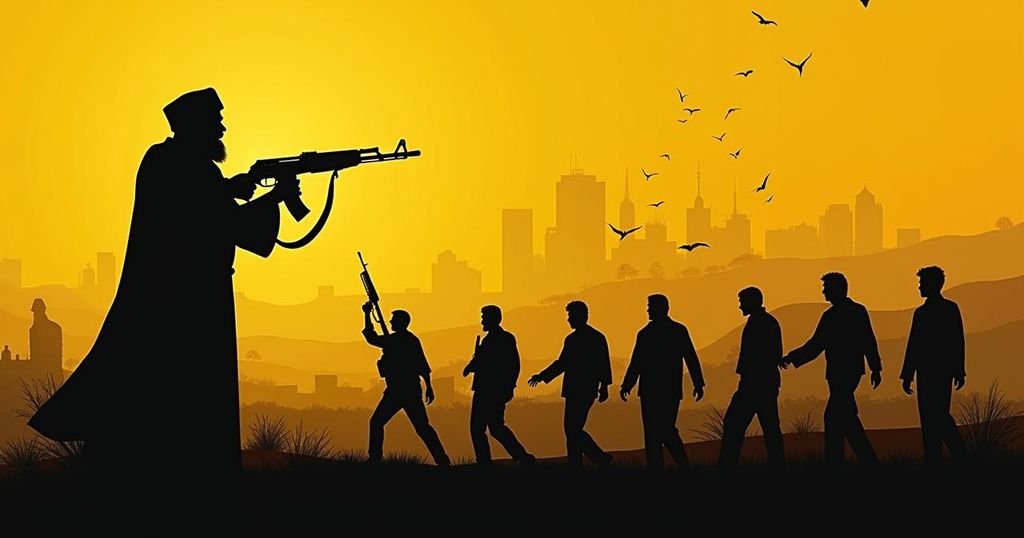Hassan Nasrallah, influential leader of Hezbollah, was killed in an Israeli airstrike, culminating a long tenure marked by resistance against Israel and complex affiliations with Iranian interests. His leadership significantly shaped Hezbollah’s role in Lebanese politics and regional dynamics. Following his death, the group faces a crucial transition in leadership and direction as it continues to engage with ongoing conflicts in the region.
Hassan Nasrallah, the enduring leader of Hezbollah, was confirmed killed during a substantial Israeli airstrike in Beirut on Friday evening. The Israeli military had claimed responsibility for the assassination earlier in the day. Nasrallah had ascended to great popularity following the war with Israel in 2006, hailed as a hero not only in Lebanon but also among various regional supporters. His identity was closely tied to the resistance against Israel, a narrative that became complicated when Hezbollah intervened in the Syrian conflict to safeguard President Bashar al-Assad. This involvement shifted perceptions of Nasrallah from a resistance leader to a representative of Iranian interests, drawing criticism from several Arab nations. Furthermore, Nasrallah struggled to distance Hezbollah from its alleged involvement in the assassination of former Lebanese Prime Minister Rafik Hariri in 2005, leading to indictments against members of his organization. Despite these controversies, Nasrallah maintained a devoted following, primarily among the Shia Muslim community in Lebanon, who respected him as both a leader and a religious figure. Born in 1960 in East Beirut, Nasrallah grew up in a politically charged environment, influenced by the Shia scholar Musa al-Sadr, who he admired from childhood. In 1982, he split from the Amal Movement due to its stance against Palestinian militias and founded Hezbollah with Iranian backing. Under his leadership, Hezbollah positioned itself as a significant political force in Lebanon throughout the civil war and emerged as a dominant power among Shia constituents by the 1990s. Rather than adopting formal language in his speeches, Nasrallah communicated in dialect familiar to his audience, which contributed to his reputation as a relatable leader. His oratory skills helped transform both political claims and religious imagery into powerful messages that resonated widely. Hezbollah’s strategic entry into Lebanon’s political landscape, under Nasrallah’s direction, saw it participating in democratic elections starting in 1992. He emphasized unity among Lebanon’s Muslim sects against Israel, stating, “We, Shia and Sunnis, are fighting together against Israel.” Despite never holding public office, Nasrallah was viewed as the strongest figure in Lebanon, although critics noted that Hezbollah’s political influence stemmed from its armed capabilities. He resisted demands for Hezbollah to disarm, declaring that disarmament would leave Lebanon vulnerable to Israeli aggression. In 2019, he reacted negatively to nationwide protests calling for political reform, damaging his image among some segments of the population. Yet, many of his supporters regarded him as a champion of Shia rights, while opposition factions accused him of prioritizing Iranian affiliations over Lebanese interests. In an escalating confrontation with Israel to support Hamas, Hezbollah faced significant challenges leading up to October 2023, resulting in losses amid ongoing cross-border violence. Nasrallah’s steadfastness was a hallmark of his leadership. While Nasrallah was long considered the embodiment of Hezbollah, the organization he cultivated is firmly structured and committed to resisting Israeli actions. His assassination marks a pivotal change for the group, which must now select a new leader and determine its future path, decisions that will undoubtedly resonate beyond Hezbollah’s confines to impact Lebanon and the broader region.
The assassination of Hassan Nasrallah signifies a dramatic alteration in the landscape of Lebanese and Middle Eastern politics. As the leader of Hezbollah for over three decades, Nasrallah’s influence extended well beyond the borders of Lebanon, shaping perceptions of Shia identity and resistance to Israel. His rise to power coincided with significant regional tensions and conflicts, particularly following Hezbollah’s pivotal role in the Lebanese civil war and the subsequent rise of Iranian sway in the region. This background highlights the complex interplay of sectarian issues, regional geopolitics, and the evolution of militant groups within Lebanon.
In conclusion, the assassination of Hassan Nasrallah has not only deprived Hezbollah of its longstanding leader but also presented a critical juncture for the group as it navigates its future amidst shifting regional dynamics. While the organizational framework of Hezbollah is likely to endure, the strategic direction and political engagements will need reevaluation in light of Nasrallah’s monumental legacy and the ongoing challenges posed by both internal and external forces. The implications of these developments will resonate widely throughout Lebanon and the broader Middle East.
Original Source: kashmirreader.com






